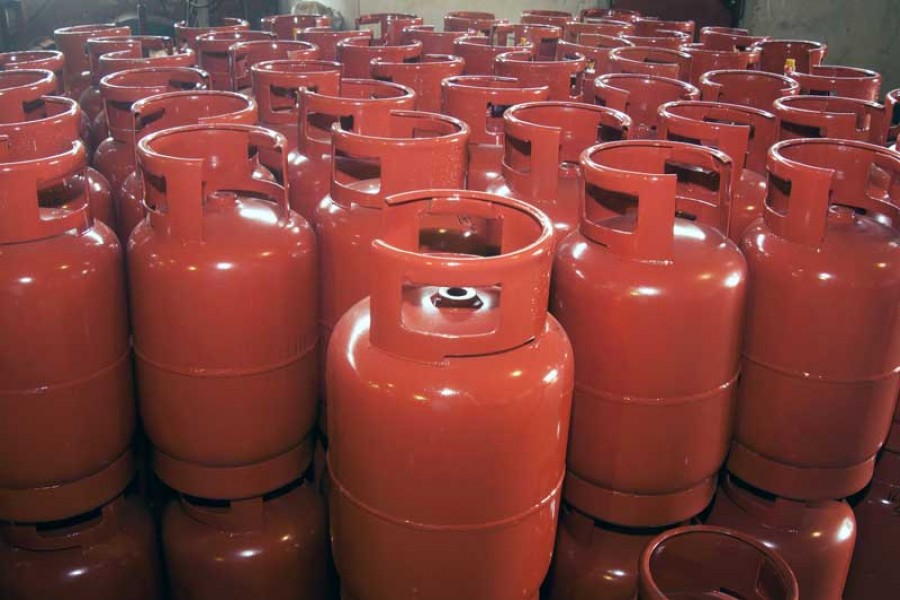It is difficult to appreciate the government's attitude towards consumers of liquefied petroleum gas (LPG). Domestic LPG market has expanded in recent years with the number of LPG users rising at a fast pace. But the government has not put in place a comprehensive policy that would protect the interests of both consumers and businesses operating in the sector. The consumers, on the one hand, do not get piped supply of relatively cheap and clean natural gas on a regular basis, and are victims of the whims of the LPG gas marketing companies, on the other. The domestic LPG users are greatly aggrieved by the government inaction as these companies have hiked the prices of bottled LPG gas between 20 and 25 per cent in one go. LPG importers, though, claim that increase in the international price of LPG has forced them to go for upward revision of the product's domestic prices.
The state minister for power and energy some months back divulged the government plan of replacing 70 per cent of domestic gas connections with LPG within a couple of years. The reality is that no government policy is necessary for such replacement. Thousands of residents dependent on piped gas supply are left with no option other than switching over to LPG use since their burners remain gas-starved for most part of the day. Yet, they have to count gas bills at the end of every month. Thus, the number of LPG users has been rising constantly. The rise in demand, naturally, has lured a good number of entrepreneurs to LPG marketing. The market that once had only one operator, the LP Gas Limited, a concern of the state-owned Bangladesh Petroleum Corporation, is now buzzing with as many as 20 private companies meeting more than 90 per cent of the demand for LPG. And most companies entered the market during the last three-four years.
The private LPG companies in support of their latest price hike claim that they have been incurring losses from their business operations. However, the competition among companies to enter the LPG market does suggest otherwise. Moreover, there exists a huge gap in prices of bottled LPG being marketed by the state-owned company and that by the private operators--the price gap is Tk.550 in the case of a 12 kg LPG cylinder. But the fact remains that supply of gas cylinder by the state-owned LP Gas Company is highly erratic and problem-ridden.
As for LPG pricing, the role of the Bangladesh Energy Regulatory Commission (BERC) appears intriguing. By law, the BERC is mandated to regulate power and energy pricing. So, the energy ministry should have received suggestions from the LPG gas companies and sent those to the BERC for review. The energy sector regulator, after holding necessary public hearings, would have recommended any price revision. That should have been the normal course. In reality, BERC, deliberately or otherwise, prefers to bypass the issue of LPG gas pricing. But it cannot remain indifferent to an issue that involves the interest of millions of LPG users across the country. There cannot be a free-for-all situation in any sector that concerns people's interest.


